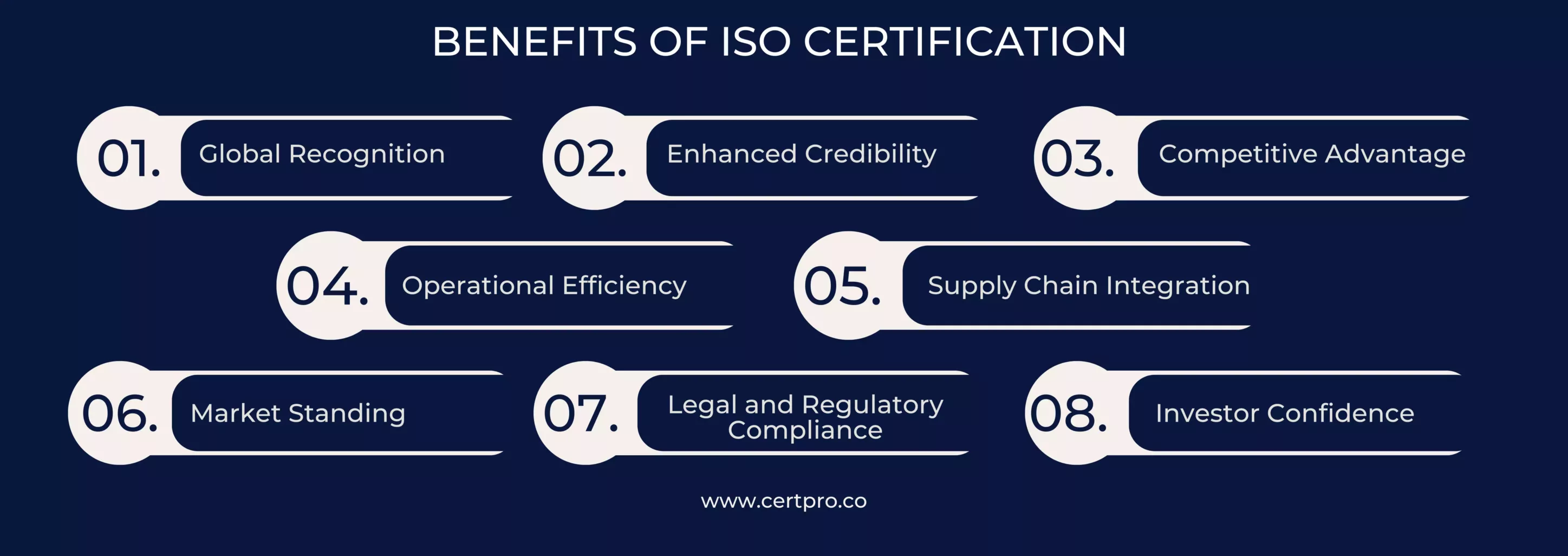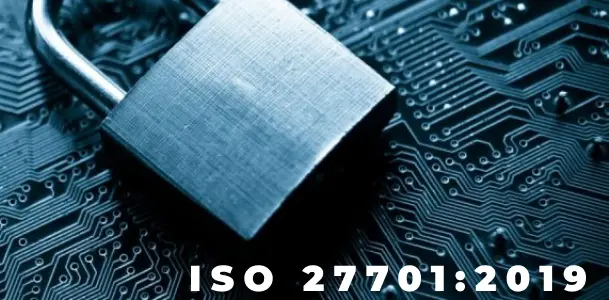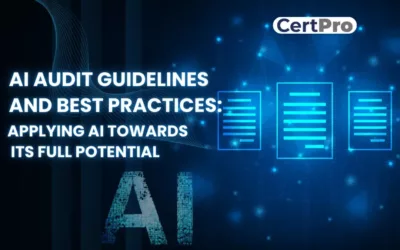USA
ISO Certification in USA
The United States, ranking as the third-largest country globally, is not only a beacon of economic strength but also a champion of democratic values. In the realm of economic prowess, the USA holds the top spot by nominal GDP and stands as the second-largest by purchasing power parity (PPP). With a rapidly advancing service sector, the importance of ISO certification in USA has surged significantly. As a global leader, the USA excels across various industries, making ISO certification a vital component for ensuring quality and compliance. The nation is a powerhouse in the IT sector, leading in IT services, Business Process Outsourcing (BPO), and software services. With a robust startup ecosystem that has hosted over 3,100 technology startups in recent years, the USA is recognized as an innovation hub. The automobile industry, a major player worldwide, significantly contributes to the demand for ISO certification in the USA.
Diverse sectors further highlight the necessity of ISO certification in the USA. From agriculture and manufacturing to defense, electrical, automotive, infrastructure, petroleum, chemicals, pharmaceuticals, textiles, aviation, banking, financial services, information technology, insurance, retail, tourism, media, entertainment, healthcare, logistics, telecommunications, mining, construction, fishery, and minor sectors, ISO Certification is pivotal for maintaining high standards across a vast spectrum of industries. ISO consultants in the USA play a crucial role in ensuring compliance with international standards. Specifically, certifications such as ISO 27001, SOC 2, GDPR, and HIPAA Certification in USA are integral to meeting the stringent requirements of information security, data protection, and healthcare standards. As the USA continues to be a global economic powerhouse, the emphasis on ISO certification remains paramount across various sectors, guaranteeing quality, efficiency, and adherence to international standards.
why iso certification in USA?
For businesses in the United States, the attainment of ISO certification holds immense significance in fostering trust, ensuring excellence, and optimizing operational efficiency. The acquisition of ISO certification underscores a company’s steadfast dedication to upholding stringent standards across various sectors. Particularly noteworthy is the impact of ISO 9001 certification, which empowers American enterprises by emphasizing quality management and facilitating the production of dependable products and services that prioritize customer satisfaction. Equally crucial is ISO 14001, which addresses environmental management—a key consideration for a nation committed to sustainable development amidst rapid industrial expansion. Reflecting the digital evolution in the United States, ISO certification, especially ISO 27001, becomes imperative for securing sensitive information in the ever-evolving digital landscape.
These certifications assume special importance in the diverse landscape of the U.S. market, enhancing consumer confidence and providing companies with a competitive edge on the global stage. ISO certification signifies a commitment to rigorous standards, resulting in heightened product reliability and minimized waste. Additionally, it streamlines processes, fostering increased productivity and cost reduction.
Numerous ISO certification bodies operate in the United States, offering assessment, guidance, and certification services to support businesses in navigating the certification journey effectively. In essence, ISO certification in USA empowers companies to establish robust frameworks, align with international best practices, and contribute to the nation’s advancement by championing quality, sustainability, and security.
UNDERSTANDING ISO CERTIFICATION IN USA
In the United States, ISO certification plays a pivotal role in shaping the credibility, excellence, and operational efficiency of businesses. ISO 9001 certification symbolizes a firm’s unwavering dedication to delivering trustworthy goods and services, showcasing a commitment to maintaining rigorous standards and prioritizing customer satisfaction. As the U.S. advances its industrial base, ISO 14001 gains relevance by addressing environmental responsibility in harmony with the nation’s emphasis on sustainable growth. The focus of ISO 27001 on protecting sensitive data aligns with the digital transformation journey, becoming a critical component in the evolving digital landscape.
Related Links
SOC 2 in USA
ISO 27701 in USA
GDPR in USA
ISO 27018 in USA
HIPAA in USA
CCPA in USA
PIPEDA in USA
ISO 17025 in USA
ISO 13485 in USA
CE Mark in USA
GDP in USA
GLP in USA
ISO 9001 in USA
ISO 14001 in USA
ISO 45001 in USA
ISO 22000 in USA
HACCP in USA
ISO 22301 in USA
ISO 21001 in USA
ISO 41001 in USA
ISO 20000-1 in USA
In the competitive U.S. market, ISO certification holds significant value, boosting consumer confidence and providing businesses with a global competitive edge. Beyond demonstrating adherence to strict guidelines, ISO certification improves product dependability through streamlined processes, waste reduction, and efficiency enhancements. Numerous ISO certification bodies operate in the United States, offering assessment, guidance, and certification services to support businesses effectively. Essentially, ISO certification empowers U.S. companies to establish robust structures aligned with international best practices, contributing to the nation’s progress in championing quality, sustainability, and security.
Businesses prioritizing these values not only enhance their own success but also elevate the United States’ reputation internationally. ISO certification, formally acknowledged by the International Organization for Standardization (ISO), represents global acknowledgment that an organization’s management system, processes, products, or services meet established requirements. This globally respected organization creates and disseminates standards to ensure effectiveness, safety, and quality across diverse industries. The widespread acceptance of ISO standards facilitates U.S. enterprises’ access to foreign markets with enhanced credibility, providing a competitive advantage by showcasing a commitment to quality and continuous improvement. ISO 14001 aligns with the U.S. sustainability focus, and ISO standards emphasize customer requirements, enhancing satisfaction and retention. ISO certification remains crucial for U.S. suppliers in global supply chains, promoting continuous improvement and aiding businesses in optimizing operations for competitiveness. Ultimately, ISO certification in the United States bolsters a company’s credibility, demonstrating compliance with global quality standards and fostering trust among customers and partners.

THE PROCESS OF OBTAINING ISO CERTIFICATION IN USA REQUIRES THE FOLLOWING ESSENTIAL STEPS:
Preparation and Awareness: The initial step involves gaining a clear understanding of the specific ISO standard relevant to your industry and business goals. Acquire knowledge about the standard’s requirements, benefits, and implementation procedures.
Planning: Outline a comprehensive plan detailing the steps required to align your processes with the ISO standard. Develop a schedule for implementation and delegate tasks accordingly.
Documentation: Generate or revise essential documentation, encompassing policies, procedures, work instructions, and records, to ensure their compliance with the criteria of the ISO standard.
Implementation: Integrate the documented procedures and processes throughout your organization. Monitor closely and make necessary adjustments to ensure successful implementation.
Internal Audit: Conduct an internal audit to assess the effectiveness of the implemented processes and identify any non-conformities. Resolve these issues and implement the required improvements.
Management Review: Conduct a management review to evaluate the progress, effectiveness, and relevance of the ISO management system implementation. Assess whether any modifications or improvements are necessary.
Certification Body Selection: Choose a reputable certification organization to conduct the external audit. The certifying body will scrutinize your documentation, procedures, and implementation to assess your readiness for certification.
Stage 1 Audit (Document Review): The certification organization initially reviews your procedures and documents to verify their compliance with the ISO standard’s requirements.
Stage 2 Audit (On-Site Audit): The certification body performs an on-site audit to validate the implementation of your ISO management system, evaluating the alignment of your processes with the requirements of the standard.
Certification Decision: Based on the audit results, the certification organization determines whether to award certification. Your company will receive an ISO certificate if it adheres to the standard’s requirements.
Surveillance Audits: The certification organization performs regular surveillance audits to confirm ongoing compliance with the ISO standard. Typically, these audits occur annually.
Close collaboration with the selected certification organization and strict adherence to its guidelines are essential throughout the entire process.
POPULAR ISO STANDARDS IN USA
In the United States, various ISO standards have gained widespread acceptance across diverse industries, contributing significantly to improved quality, safety, and operational efficiency. Among these, ISO 9001:2015 occupies a crucial position, emphasizing quality management systems to ensure the consistency and reliability of products and services. Notably, ISO 14001:2015, in alignment with the nation’s emphasis on sustainability, addresses environmental management systems, advocating responsible practices amidst rapid industrialization.
Amidst the country’s ongoing digital transformation, ISO 27001:2013 has emerged as a key player in data security. This standard plays a vital role in helping organizations secure sensitive information, aligning seamlessly with the United States’ digital security priorities. Specifically tailored for the automotive sector, ISO 26262 ensures the functional safety of electrical and electronic systems, a critical factor for enhancing road safety.
Additionally, ISO 45001:2018 places a spotlight on occupational health and safety, aligning with the United States’ commitment to worker well-being. In the food industry, ISO 22000:2018 addresses food safety management systems, a cornerstone for ensuring consumer protection. Reflecting the nation’s dedication to sustainable energy practices, ISO 50001:2018 tackles energy management. In essence, these ISO standards resonate with the United States’ developmental goals, regulatory requirements, and technological advancements. They play a pivotal role in elevating industry practices, contributing to global recognition for American businesses on the international stage.
BENEFITS OF ISO CERTIFICATION IN USA
ISO certification in the United States ensures that products and services adhere to global quality standards, enhancing customer satisfaction and providing companies with a competitive edge. Beyond this, ISO certification guarantees the correct implementation of processes, reducing the risk of business failure. American businesses can derive significant benefits from ISO certification, fostering growth, legitimacy, and operational excellence.
Firstly, ISO certification elevates a company’s standing in the market by showcasing a commitment to international standards, ultimately boosting customer confidence. This heightened credibility leads to increased client loyalty and retention, reinforcing the business’s market position.
Secondly, ISO certification in the United States facilitates smoother access to international trade, reduces trade barriers, and establishes a recognized quality baseline, opening doors to global markets. This is particularly advantageous for American companies aiming to expand internationally and capitalize on economic opportunities. Additionally, U.S. businesses holding ISO certification gain a competitive edge in the market. This certification sets them apart from competitors, attracting potential customers and business partners by highlighting their dedication to quality, efficiency, and continual improvement.
- Global Recognition: ISO certification’s international recognition opens doors for American enterprises, facilitating global trade and boosting their international market reach. This recognition gives US enterprises a significant competitive advantage, allowing them to navigate international markets with legitimacy and trust.
- Enhanced Credibility: Both on a domestic and international scale, it enhances the credibility and trust of clients, partners, and investors.
- Competitive Advantage: Businesses holding ISO certification outperform their competitors by demonstrating their commitment to excellence and quality.
- Operational Efficiency: Enhancements in processes contribute to an overall increase in operational effectiveness.
- Supply Chain Integration:ISO accreditation is essential for numerous international supply chains, providing opportunities to collaborate with overseas partners.
- Market Standing: Achieving ISO certification enhances a company’s market reputation, drawing in more clients and expanding business opportunities.
- Legal and Regulatory Compliance: ISO certification simplifies adherence to both national and international laws.
- Investor Confidence: Showcasing a dedication to best practices enhances investor confidence.
In the end, ISO certification in the USA enables companies to prosper in a cutthroat environment, build trust in international marketplaces, maintain moral and sustainable business practices, and continuously enhance their operations for long-term success.

ISO CERTIFICATION BODIES IN USA
When searching for certification bodies, seek out those that the ANSI National Accreditation Board (ANAB) has accredited. Numerous certification agencies in the United States hold ANAB accreditation, guaranteeing adherence to stringent requirements. Below is a list of ANAB-accredited businesses that provide a wide range of certification services to fulfill your specific requirements.
1. AQSR: AQSR, a specialized certification organization, specializes in ISO/TS 16949 certification, an automotive sector quality management system standard. IATF 16949, having superseded ISO/TS 16949, requires automotive firms to actively demonstrate their commitment to industry-specific quality and safety standards. AQSR examines compliance with these standards through audits and assessments, playing a critical role in empowering automotive firms to enhance quality, efficiency, and compliance. Contact AQSR or the applicable accreditation authorities for the most up-to-date information.
2. Intercert: Intercert, a potential certification body, may engage in evaluating and certifying organizations against particular standards. This procedure generally includes performing audits and assessments to verify that a company aligns with established criteria, such as ISO standards set by the International Organization for Standardization. For accurate and current details about a specific Intercert, it is advisable to consult official sources, communicate directly with the organization, or refer to accreditation bodies. It’s crucial for businesses pursuing certification to grasp the certification body’s specialization and accreditation scope.
3. BSI Group (British Standards Institution): BSI, a prominent global certification body, offers a wide range of services in accordance with various standards such as ISO 9001, ISO 14001, ISO 27001, and others. BSI is a global organization that assists firms in achieving and maintaining compliance with international quality, environmental, and information security management standards.
4. ABS Quality Evaluations: ABS Quality Evaluations (ABS QE) is a certification body that provides auditing and certification services to organizations across various industries. It operates as a subsidiary of the American Bureau of Shipping (ABS), a well-known maritime classification society. ABS QE specializes in assessing and certifying management systems for quality, environmental, and health and safety standards, including ISO 9001, ISO 14001, ISO 45001, and others. Organizations seek ABS QE certification to demonstrate compliance with international standards and enhance their overall business performance. For the latest and most accurate information, it is recommended to check directly with ABS Quality Evaluations.
5. DEKRA: Dekra Certification Inc. is a globally recognized certification body that provides auditing and certification services across various industries. As part of the DEKRA Group, it specializes in assessing and certifying management systems for quality, environmental, health and safety, and information security standards. DEKRA Certification Inc. supports organizations in demonstrating compliance with international standards, such as ISO 9001, ISO 14001, ISO 45001, ISO 27001, and others. Businesses often seek DEKRA certification to enhance their credibility, demonstrate commitment to quality, and improve overall operational performance. For the latest and most accurate information, it is advisable to check directly with DEKRA Certification, Inc.
INDUSTRIES THAT BENEFIT FROM ISO CERTIFICATION IN USA
The numerous advantages of ISO certification, which have a big impact on the country’s varied industries, have made many American firms realize how important it is to their success. Beyond just credentials, these certifications represent a dedication to sustainability, safety, and quality. Manufacturing industry productivity and product quality are improved in the United States via ISO 9001 accreditation. Enhancing customer pleasure and giving firms a strong base in competitive marketplaces builds a culture of constant development and consumer trust.
The USA’s IT industry cannot function without ISO 27001 certification in a time when data is extremely valuable. By strengthening risk management and data security procedures, it enables the sector to benefit from technological breakthroughs while protecting sensitive data. This is essential for establishing trust with clients across a range of in addition to guaranteeing commercial success. The automotive sector depends on the ISO/TS 16949 standard, which ensures vehicle security and dependability and supports the United States’ status as a major global manufacturer of high-quality autos. These certificates in healthcare improve the nation’s healthcare system by guaranteeing precision, legal compliance, and high standards.
Beyond the scope of individual companies, ISO certification has a significant positive impact on society by encouraging sustainable and environmentally friendly building methods. As a result of advancements in healthcare, education, and eco-friendly business practices across industries, the United States becomes greener, healthier, and wealthier. The knowledge of ISO consultants in the USA is beneficial to American companies looking to get ISO certified. Ratification in the USA and HIPAA, which guarantee thorough adherence to international standards and advance society as a whole.
FAQ
Which ISO standards are commonly pursued by businesses in the USA?
US businesses commonly pursue ISO 9001:2015, ISO 14001:2015, ISO 27001:2013, and ISO 45001:2018 for quality, environmental, information security, and occupational health and safety management. These certifications ensure industry-wide compliance.
How does ISO certification benefit businesses in the USA?
ISO certification in the USA offers enhanced credibility, expanded market access, operational efficiency, heightened customer satisfaction, and a global competitive advantage. It signals a dedication to quality, sustainability, and compliance with international standards.
Why is ISO certification important for businesses in the USA?
ISO certification is crucial for businesses in the USA as it signifies a dedication to excellence, adherence to global standards, and a commitment to continuous improvement. It opens doors to international trade, enhances market reputation, and provides a competitive advantage.
What are the key steps in obtaining ISO certification in the USA?
Obtaining ISO Certification in the USA follows a systematic process: preparation, planning, documentation, implementation, internal audit, management review, certification body selection, document review, on-site audit, certification decision, and regular surveillance audits, ensuring compliance.
Which industries in the USA benefit the most from ISO certification?
ISO certification benefits a wide range of industries in the USA, including manufacturing, IT, automotive, healthcare, construction, financial services, and more. The certifications contribute to operational efficiency, product quality, data security, and overall business excellence.
HOW DOES THE NIST CYBERSECURITY FRAMEWORK FUNCTION, AND WHY IS IT IMPORTANT?
Emerging cyber threats make cybersecurity an essential consideration for organizations handling and managing data. In this regard, the NIST cybersecurity framework applies to improving your cybersecurity program. It is a set of guidelines that helps improve your...
AI Audit Guidelines and Best Practices: Applying AI Towards Its Full Potential
Artificial Intelligence is entering different industries, where it is used for customer handling, data management, and documentation processes. The interference of AI is increasing concerns regarding ethical practice and safety. Therefore, AI audits have become more...
AUDIT LOG: INFORMATION SECURITY BEST PRACTICES FOR BUSINESSES
An audit log is the best information security practice for organizations. This article elaborates on the operational process of audit logs and how companies utilize them for business growth. What is an audit log, and how does it work for organizations? For more...












